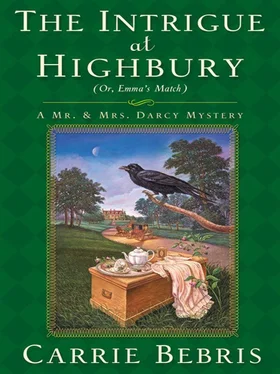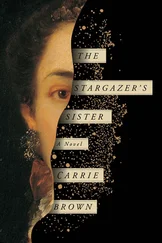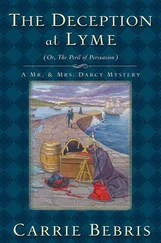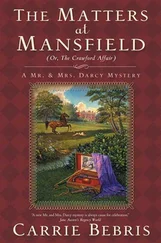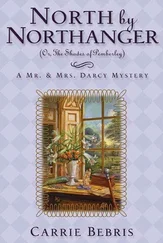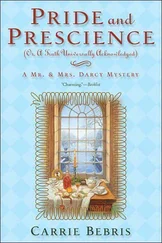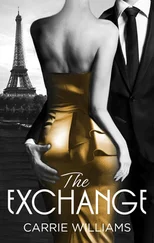“Indeed, no. Edgar Churchill was my father, and my arrival, a little more than a year into their marriage, was entirely legitimate. But I learned this only recently. Growing up, I knew merely that I had been born in London to parents either unable or unwilling to keep a maimed child. I always imagined they were a kind but fortuneless couple with so many other mouths to feed that they could not afford to raise a son whose deformity would forever be a burden.”
“And the woman who did raise you?” Mr. Knightley asked.
“My adoptive parents were hardly wealthy themselves. They owned a modest shop in a village not unlike this one, and it was there that I learned my sums and began to develop the skills of a salesman. They also taught me my letters and manners, for they knew the life of a cripple would not be easy, and they wanted to prepare me as best they could to make my way in the world.”
“How, then, did you come to consort with gypsies?”
Mr. Deal leaned back, settling into both his chair and his story. His manner, however, did not have quite the ease with which he spun his trader’s patter. This time, instead of selling his wares, the peddler had to sell himself, and Darcy and Mr. Knightley were determined not to be taken in.
“When I was nine, scarlet fever claimed both of my parents, along with most of the village. Before she died, my mother told me that my birth name was Churchill, but cautioned me against trying to find my true parents. I would be safer and happier in the village, she said, running the shop with the guidance of a friend she asked to look out for me until I could manage independently. But her friend died, too. The outbreak left the village decimated; parish relief was exhausted, and nobody wanted the trouble of caring for a child not theirs, not whole, and of unknown origins. I sold everything I could not carry, packed my haversack, and left the village determined to somehow find my way to London.
“I had not journeyed a mile when I encountered a kumpania —a caravan — of gypsies moving through the area. They had heard of the contagion that claimed our village and, afraid I carried the fever, warned me to keep my distance. But they had among them a drabarni . In the Romany tongue, that word can mean a seer or a healer; Rawnie Zsófia was both. There are many pretenders to both arts among the gypsies, but if there is one who truly possesses the gifts of prophecy and medicine, it is Rawnie Zsófia. She told her fellow gypsies that they had nothing to fear, that I must join them. She was a young woman then, not yet thirty and unmarried, but already they respected her as if she were an elder.
“She asked me where I traveled. Her black eyes at once fascinated and frightened me — I was certain she could see straight into my mind and heart. I stammered out that I was seeking my mother. ‘You need look no farther,’ she replied. ‘I foresaw that you would come to me. From today, you are my chosen son.’ ” His voice grew thick as he recalled the meeting and repeated her words.
“And so I became a gypsy, with a gypsy life and a gypsy name. Among the Roma, Rawnie Zsófia’s protection was better than royal patronage, and they accepted me without question. My deformity was nothing to a people who had themselves endured centuries of persecution, and they taught me such skills as were within my power to make others overlook my missing hand. It was in this familia that I learned the art of storytelling. And a few other talents.”
What these other talents were, Mr. Deal did not specify. Darcy suspected that a number of them were of questionable legality.
“In turn,” the peddler continued, “I became the caravan’s middleman with the gorgios . My English features and respectable speech enabled me to move freely wherever we traveled, and I soon earned my keep by selling the gypsies’ wares in towns we camped near. As I grew older, the path of my journeys often divided from that of the caravan, sometimes for prolonged periods. But always I returned to my gypsy mother, the woman known to others as Rawnie Zsófia, but to me alone as dai .”
Darcy stirred impatiently. The peddler had an interesting history, but none of it explained his recent dealings with the Churchills and the events of June twenty-sixth. “When and why did you seek out the Churchills?”
“Though I was content with my gypsy familia , I often wondered about my birth parents. Whenever Rawnie Zsófia told my fortune, she would not reveal anything she saw about the Churchills, and a sorrowful expression would overcome her face if I asked whether I would ever meet them. ‘In time, my chavo ,’ she would say. ‘In time.’
“Last spring, the caravan camped just outside of Highbury. I was not with them, but there was an incident involving a young woman who became frightened when some of the children begged her for a coin. A gentleman intervened — Mr. Churchill, the woman called him. Though he bears a resemblance to my own appearance fifteen years ago, Rawnie Zsófia needed no physical cues to know him immediately for my kin. She had already seen him in visions. When I was next with her, I sensed that something had changed. I asked why she was so heavyhearted. ‘The time is come,’ she said.
“I traced Frank to the Churchills’ house in Richmond, then over the next month ascertained that the senior Churchills were indeed the couple who had abandoned me. Though I trusted the truth of Rawnie Zsófia’s visions, I needed more objective proof before attempting to meet them. And that is all I wanted — simply to meet them. I did not intend to reveal my identity.”
Mr. Knightley, who had been taking occasional notes as Mr. Deal spoke, stopped his pen midstroke. “After spending years among a race infamous for thievery, you discovered that your parents were quite wealthy, yet you had no ambitions of claiming some of that wealth as your own?”
A wry smile formed on Mr. Deal’s lips. “My life with the gypsies indeed influenced me, but not in the manner you assume. The Roma are, in fact, not an avaricious people; their language does not even include a word for ‘possession.’ They take and use only what they need, and cannot comprehend the compulsion of ‘civilized’ men to acquire more.” His expression grew serious again. “When I say I did not aspire to the Churchills’ riches, I speak the truth, and after seeing the creature my birth mother became under the malignant influence of money, I am even more decided. I want no part of the Churchill fortune; my cousin Frank is welcome to it.”
“And is this what you told Agnes Churchill?”
“Our conversation never progressed that far. Even if it had, her own enslavement to power and wealth so distorted her thinking that I doubt she would have believed me.”
Mr. Deal cleared his throat several times. It was dry in the room, and he had been speaking some time with little interruption. Mr. Knightley rose and went to a small side table that held a decanter and glasses. As he poured a glass of wine and handed it to Mr. Deal, Darcy went to Elizabeth.
“What brings you?” he whispered.
“Mr. Cole was called away,” she whispered back, “but says he will return directly.” She nodded towards Mr. Deal. “This is quite a tale.” She appeared reluctant to leave.
Indeed, he would not mind hearing her assessment of the story when Mr. Deal had done telling it. “Stay if you wish. Though be discreet.”
He returned to his position near the table with the wine. Mr. Knightley had just topped off Mr. Deal’s glass.
“Pray, describe exactly what transpired during your meeting with Mrs. Churchill,” Mr. Knightley said.
Mr. Deal swallowed more wine before continuing. “I thought it would be best to meet only my mother first, so I waited for a time when Frank and Edgar Churchill were out — that is why the servant saw me loitering in the neighborhood. When the opportunity arose, I called at the house as a peddler and was granted an audience with Mrs. Churchill.”
Читать дальше
